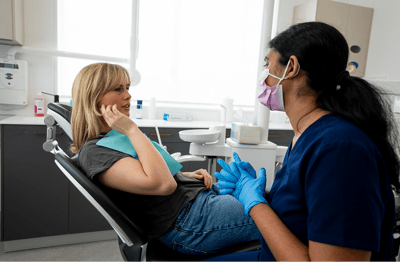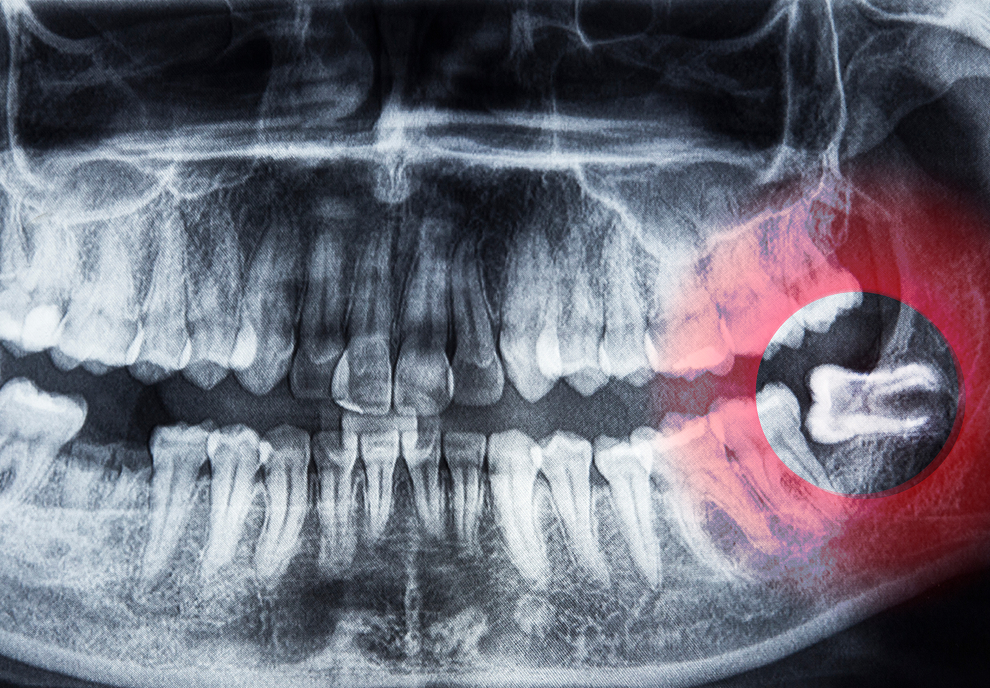If you've ever had a toothache, then you know how bad it can be. Dental nerve damage is a very common problem, and it can happen for a variety of reasons: decay, impaction, or injury are all causes.
If your wisdom teeth are impacted - which happens more often than you might think - then they can damage your nearby nerves, causing pain and other issues. Unfortunately, once nerve damage has occurred, there isn't much you can do about it - the most common resolutions are antibiotics and painkillers.
The first thing you should do when experiencing pain from nerve damage is to see your dentist for an evaluation. He or she will look at the condition of your teeth and determine if they need to be removed immediately, or if there is another option that would be less invasive. Wisdom teeth can also cause other problems (like gum disease) if they aren't removed properly. That's why it's so important to schedule an appointment with your dentist as soon as possible if you notice unusual symptoms.

Symptoms of Nerve Damage In Your Mouth
The mouth is full of nerves that help us feel the texture of food and drink, as well as taste. When these nerves are damaged by injury or infection, it can make eating and drinking a really unpleasant task. You may have experienced a burning sensation in your mouth after biting into something hot, or an unpleasant tingling when you drink cold water. These sensations are caused by nerve damage in your mouth.
You may experience:
- Difficulty chewing food
- Sensitivity to cold temperatures and sharp objects touching your cheek area
- Jaw pain when you eat or drink hot liquids
- Lack of taste perception on one side of your tongue
- Sharp pain when biting down
When a tooth is impacted, it can cause problems with your jaw. As the infection spreads, it can cause swelling in the area around the wisdom tooth, which can be very painful. You may also experience painful muscle spasms in your face and tongue. Impacted wisdom teeth removal is important because it helps prevent future problems, including infections or bone loss, caused by constant pressure from the tooth's root.
Causes of Nerve Damage
Nerve damage is a typical cause of oral pain. The dental nerve is located in the jawbone, underneath the tooth socket. The most common reason for nerve damage is impacted wisdom teeth. This occurs when the tooth does not erupt through the gums and instead becomes embedded beneath the gum line. The root fibres of the tooth can irritate or even sever the delicate nerve tissue.
There are four wisdom teeth on each side of your mouth, two in the upper jaw and two in the lower jaw. Because they are located at an angle, they have more trouble breaking through than other teeth do during development. Impacted wisdom teeth can cause problems with crowding in other areas of your mouth.
If you have an impacted wisdom tooth from nerve damage, it's important to see your dentist regularly for checkups. They'll monitor your mouth for signs of pain or infection, as well as make sure that your teeth are forming correctly. If there's any trouble with your wisdom teeth, they'll treat it before it becomes a bigger problem. Wisdom teeth are often removed if they are impacted or cause pain or infection.

How To Prevent Nerve Damage
Nerve damage is not always preventable, but there are steps you can take to reduce your risk. You can lessen your chances of nerve damage by maintaining good oral care and visiting your dentist regularly. You should also brush, floss, and rinse your mouth at least twice daily to maintain healthy gums and teeth that will not cause pain or irritation. Consider what may be causing the nerve damage and what treatment options are available. If you're experiencing issues with wisdom tooth nerve damage, removing them could be beneficial for your overall health.
Try eating foods that are easy for you to chew and swallow (like soft-cooked eggs). You should also avoid hard foods like nuts or crunchy vegetables until your mouth heals from radiation therapy. You may also want to forgo foods with seeds or pits, such as grapes and peaches. One of the best ways to prevent oral nerve damage is by using mouth guards that protect your teeth when you play sports or take part in activities where there is a risk of injury.
It's important to keep your mouth healthy so that these nerve problems don't happen. If you're concerned about any potential issues with your mouth, then please schedule an appointment with one of our dentists today!
At Mulgrave Dental Group, we’ve been the trusted family dentist in Mulgrave and the surrounding suburbs in Australia for over 40 years. Our gentle, experienced team is dedicated to providing a positive experience for you. If you have any questions, you can book an online appointment with us, or phone (03) 9562 5156.
Smile Makeover Client
Your Healthier Smile Awaits
Whether you're looking to improve your dental health or enhance your smile, we're here to help. Book an appointment with Mulgrave Dental Group today!
Book Now


